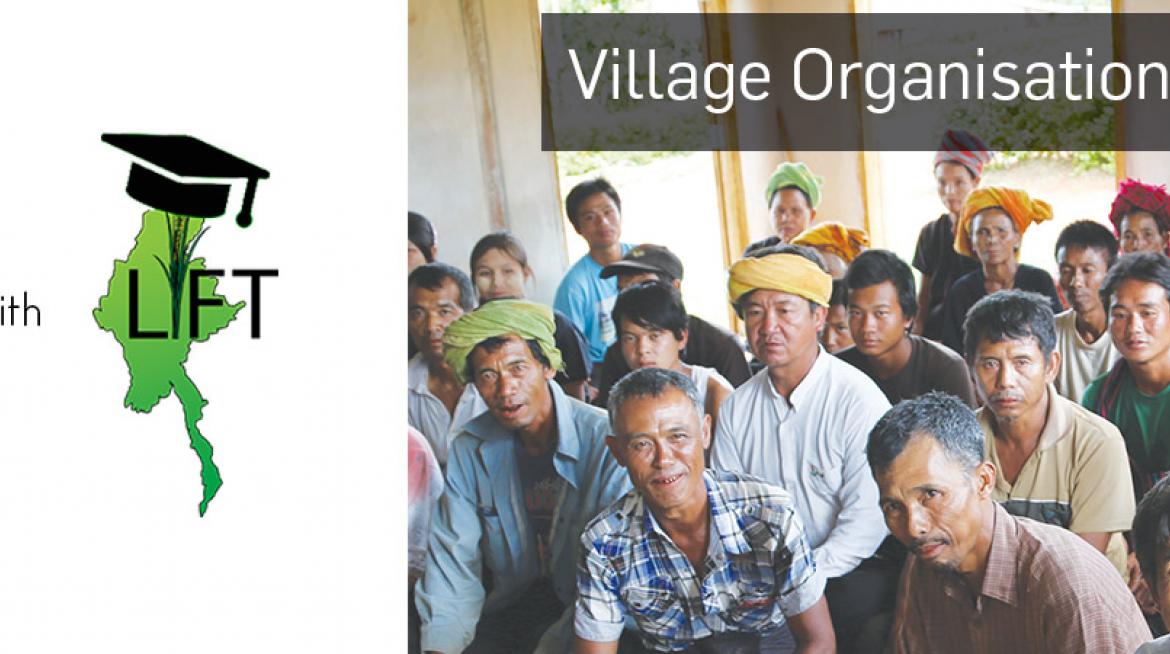
Last month, LIFT launched the Village Organisation Study, as part of LIFT’s broader strengthening civil society strategy.
The study analyses LIFT support to village organisations (VOs) for a better understanding of how village-level civil society groups can be made more effective, pro-poor, and sustainable. Research took place in 50 villages, with 300 focus groups and key informant interviews. The findings are particularly important given that by the end of 2014, LIFT implementing partners had supported over 10,000 VOs.
We sat down with author George Collet to hear his reflections on the study.
LIFT: Why is it important for LIFT to better understand VOs, their effectiveness and sustainability?
GC: There have been around 10,000 VOs established from scratch and there is potential for these organisations to continue to contribute to community development outside the scope of their current projects. The sheer number of these organisations is testament to the ability of LIFT implementing partners to mobilise communities, and the VOs now have significant potential to create long-lasting change in their communities.
It is important to harness the capacity of VOs and establish their credentials, not just for LIFT, but to grasp their sustainability beyond LIFT projects - though it is important to note that not all VOs were designed to be sustainable beyond their current projects.
 LIFT: What will happen to the VOs when projects finish?
LIFT: What will happen to the VOs when projects finish?
Support for some VOs has focused on capacity building that could enable them to drive their own development, but the majority of VOs have been set up for the purpose of project implementation. For these VOs, their sustainability beyond their projects was not previously a priority, but the growth of social capital and local ownership of projects mean that some of the VOs have continued, or want to continue, beyond the scope of the current projects.
LIFT: What sparked the change in purpose?
GC: While the implementing partners set the criteria for the current projects, the VOs really grasped the projects and transformed them to reflect the needs and wants of the community. The VOs have really claimed ownership of these projects and want to continue with new projects on their own. The capacity and resources required for this will need to be assessed, potentially in a second phase of the study. There are now thousands of VOs which have significant potential to help develop their communities. These VOs could potentially do a lot more with a small amount of capacity development. Support will need to be context specific in order to meet the needs of the community and remain cost effective.
LIFT: How can VOs ensure that their projects reach people in need? The VOs aim to enable marginalised poor households, but the study has pointed to some failures in practice. Can you explain why?
GC: Almost all VOs were free of issues of transparency and conflicts reported by either members or non-members and were generally accountable to their members and the wider community. More broadly though, some of the poorest households were not members of VOs. Some farmer groups required minimum land-holding, or asked for fees to join groups which effectively discouraged the very poor who are often very risk averse to borrowing.
So far, the activities of VOs have not been successful in reaching poorest. This is largely because the poorest and most vulnerable people are also very difficult to reach. The main benefits have therefore been seen by the poor and vulnerable rather than the poorest and most vulnerable. The study investigated this concern in order for LIFT to consider ways to reach the most disadvantaged populations. If LIFT wishes to reach these populations, we need to change the approach and create dedicated focus to reach the poorest citizens.
LIFT: How can we use this information going forward?
GC: The study presented the ability of LIFT implementing partners to mobilise communities and the successful collaboration between the implementing partners and the communities they work in. While not initially considered, the possibility of sustaining some of the VOs will be considered.
The study has many implications for the work of LIFT’s implementing partners in the villages and currently there is some potential for a second phase of the study that can help look at the sustainability of VOs and developing a more effective pro-poor focus.
Read the full report of Village Organisation study in English here and in Myanmar here


